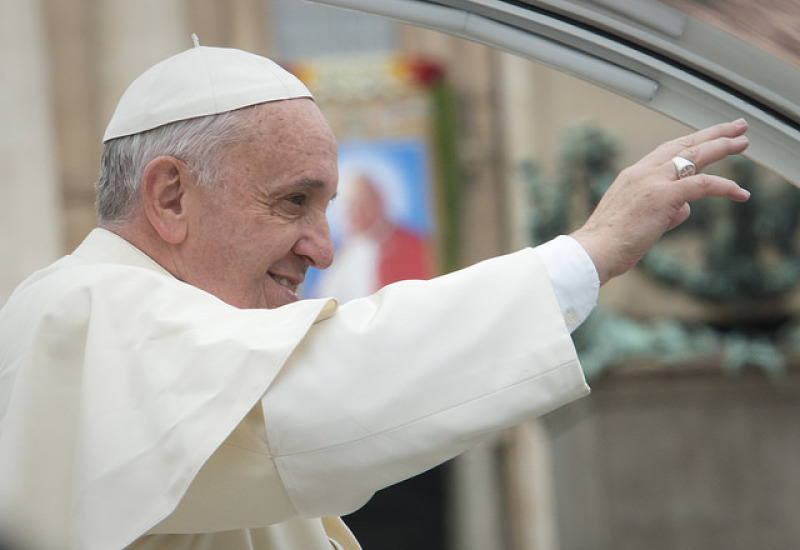
Pope Francis insisted that spiritual health is just as important as physical health and urged authorities to respect and protect religious freedom in their fight against the spread of COVID-19.
On Monday, Pope Francis wrote an address to the members of the Diplomatic Corps accredited to the Holy See in which he emphasized the need of civil authorities to respect and defend freedom of worship.
"Freedom of worship, furthermore, is not a corollary of the freedom of assembly," he argued. "It is in essence derived from the right to freedom of religion, which is the primary and fundamental human right."
"This right must therefore be respected, protected, and defended by civil authorities, like the right to bodily and physical health," he insisted. "For that matter, sound care of the body can never ignore the care of the soul."
According to Breitbart, in line with the efforts to combat the spread of the coronavirus, numerous implications were done "for a number of fundamental freedoms, including religious freedom, restricting public worship and the educational and charitable activities of faith communities," Pope Francis noted in his address.
During the coronavirus pandemic, many countries have categorized activities into "essential" and "nonessential" activities. Religious activities often fall into the latter category, Pope Francis denounced.
"It must be recognized, however, that religion is a fundamental aspect of the human person and of society, and cannot be eliminated," Pope Francis claimed. "Even as we seek ways to protect human lives from the spread of the virus, we cannot view the spiritual and moral dimension of the human person as less important than physical health."
Pope Francis also mentioned in his address that he knows everyone, including himself, is looking forward to the resumption of normal daily routines and personal contacts as soon as possible.
The number of crises that humans are currently experiencing can not be solved "unless we safeguard the transcendent dignity of each human person, created in the image and likeness of God," the Pope concluded.
The Pope's address followed on the heels of the U.S. Supreme Court's decision last Friday regarding the banning of indoor church services in California.
In the Supreme Court's opinion regarding the 6-3 majority in the case of South Bay United Pentecostal Church v. Newsom, Chief Justice John Roberts wrote that the "federal courts owe significant deference" to the public health officials, but there will be limitations.
"The state's present determination - that the maximum number of adherents who can safely worship in the most cavernous cathedral is zero - appears to reflect not expertise or discretion, but instead insufficient appreciation or consideration of the interests at stake," Chief Justice Roberts wrote.
Justice Neil Gorsuch also noted that since the coronavirus outbreak, California has openly pressed stricter measures on religious institutions than those of other businesses.
"When a State so obviously targets religion for differential treatment, our job becomes that much clearer," Gorsuch said. "As the Ninth Circuit recognized, regulations like these violate the First Amendment unless the State can show they are the least restrictive means of achieving a compelling government interest."
"Drafting narrowly tailored regulations can be difficult," he concluded. "But if Hollywood may host a studio audience or film a singing competition while not a single soul may enter California's churches, synagogues, and mosques, something has gone seriously awry."

























